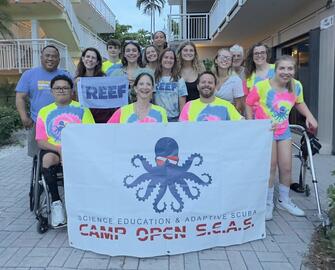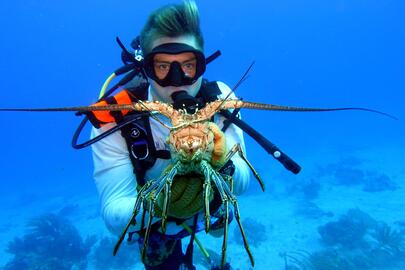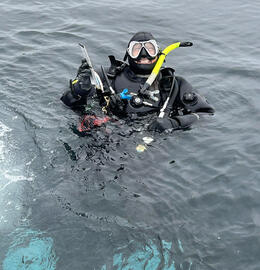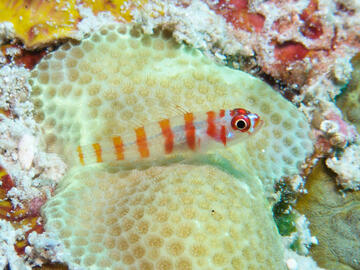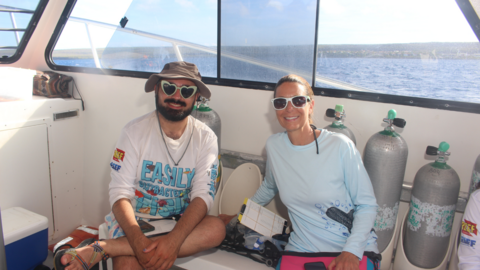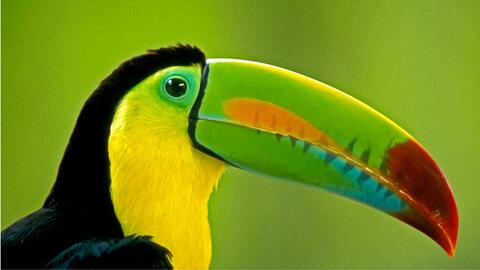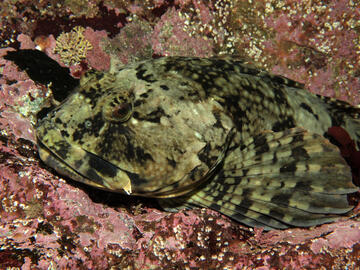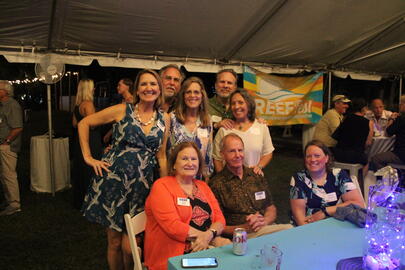2024 is winding down, and if you have any REEF surveys that you haven't yet entered, now is a great time to get them submitted so you can start off 2025 with a fresh "slate!" The marine life information collected by REEF volunteers is used by scientists and researchers to learn more about our oceans and how to best protect them. Each survey you conduct as a citizen scientist can help make a difference, but these data must be submitted to the REEF database.
In 2024, REEF’s education initiatives have made a profound impact, from raising awareness about marine conservation to engaging communities in protecting ocean life. Here's a look at how REEF education programs made an impact this year:
REEF members are the heart of our grassroots marine conservation programs. A diverse community of divers, snorkelers, and ocean enthusiasts support our mission to conserve marine environments worldwide.
This month we highlight Max Arseneault, a REEF member who lives in California. He joined REEF in 2021 and has conducted more than 140 surveys in the US/Canada Pacific Coast (PAC) region, where he is a Level 3 surveyor! We are proud to feature Max this month, and are glad that he is part of REEF.
Water temperatures were 55F. Nevertheless, members of the Pacific Northwest REEF Advanced Assessment Team (AAT) jumped off a perfectly good boat last month to count fish and invertebrate populations, all in the name of citizen science and fun! Expert Level surveyors (Levels 4 and 5) assisted with the annual Salish Sea monitoring project. This year’s effort was focused in the southern Salish Sea - South Puget Sound in Washington.
Meet our festive December Fish of the Month, the Candycane Pygmygoby, Trimma cana!
Survey Regions: The Candycane Pygmygoby is found throughout the tropical Pacific, including Indonesia, the Philippines, and Micronesia, part of REEF's Central Indo-Pacific (CIP) region. Click here to see a distribution for this species in the REEF database.
Are you an educator with a passion for marine conservation and hands-on learning? Check out the REEF Educator in the Field Fellowship! This unique opportunity is a great way to deepen your knowledge of ocean citizen science.The Fellowship, awarded annually, enables a qualified educator to participate in a REEF Field Survey Trip. They will join other citizen scientist volunteers to learn about marine life and conduct fish surveys while scuba diving or snorkeling as part of the REEF Volunteer Fish Survey Project.
REEF members are the heart of our grassroots marine conservation programs. A diverse community of divers, snorkelers, and ocean enthusiasts support our mission to conserve marine environments worldwide.
Looking for an adventure to explore both the ocean and the rainforest? REEF’s eco-adventure to Costa Rica includes diving or snorkeling plus land-based tours through a vibrant tropical rainforest and a wildlife-watching boat trip! This weeklong trip includes four days of diving/snorkeling to conduct REEF surveys and a variety of tours through the diverse Guanacaste region, and is a great fit for divers, snorkelers, and families.
Meet our November Fish of the Month, the Cabezon, Scorpaenichthys marmoratus!
Survey Regions: The Cabezon is commonly found throughout REEF's PAC region, from southern California to British Columbia, and occasionally north to Alaska. Click here to see a distribution for this species in the REEF database.
We recently hosted our annual REEF Fest in Key Largo, and we want to thank everyone who joined to celebrate marine conservation. We had an amazing time enjoying seminars, socials and nature tours, while connecting with our amazing REEF members and the Keys community. Our seminar speakers shared some excellent presentations, on topics ranging from Upside-down Jellyfish, Diving With a Purpose's citizen science program, the importance of museum collections in science, the history and future of Key Largo's marine environment, and REEF's exciting conservation science work.


